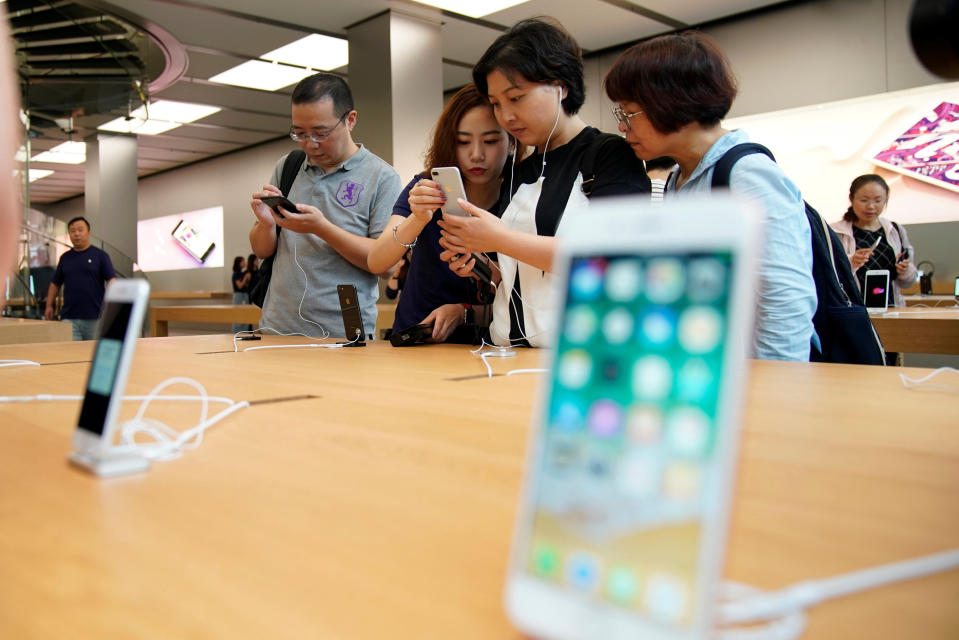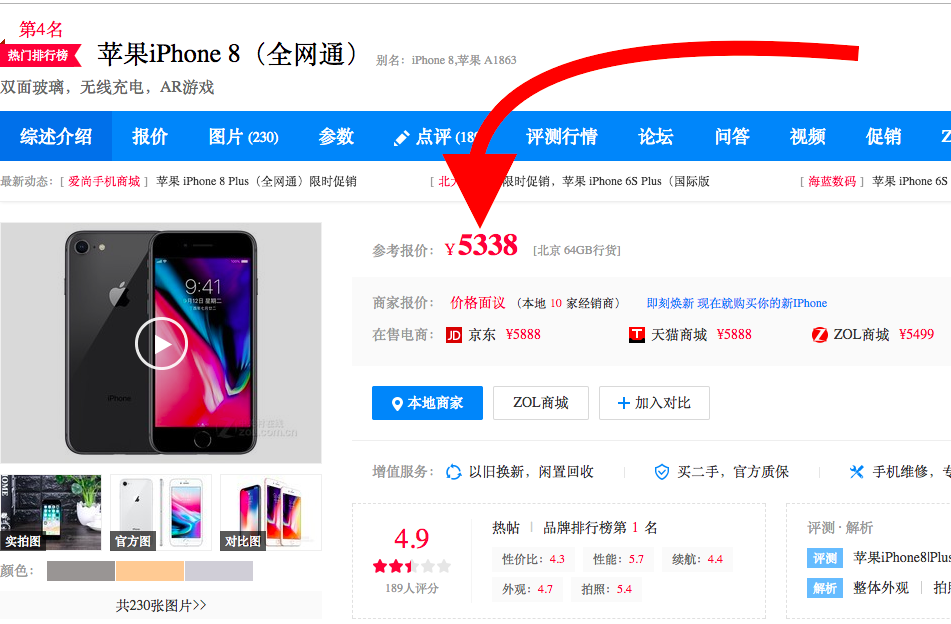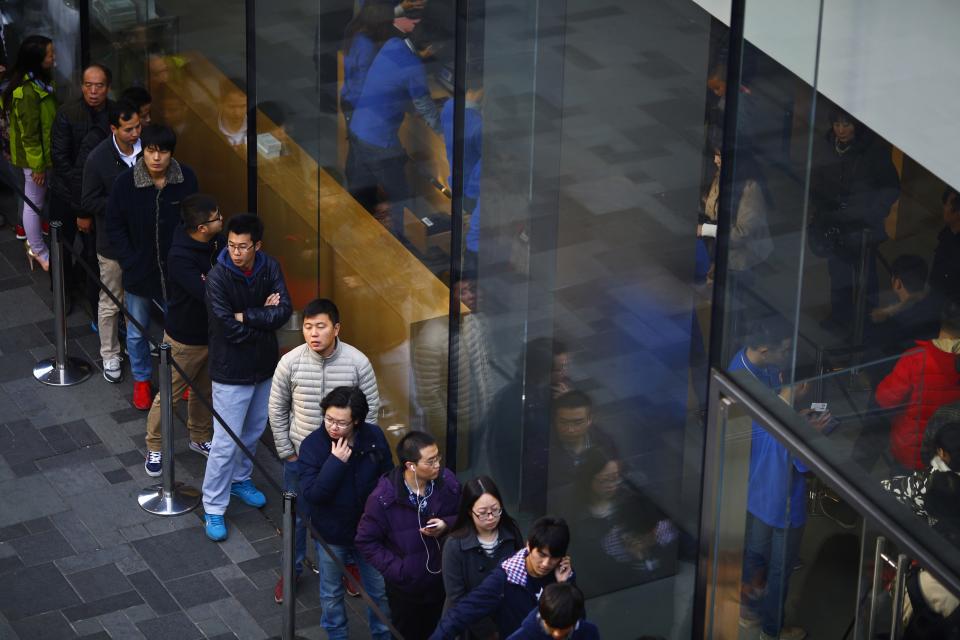The iPhone 8 is already selling at a discount in China

Apple (AAPL) products seldom go on sale, let alone a newly released one. But that’s what happened to the iPhone 8 in China, Apple’s largest market outside the U.S.
Within a month after the debut of iPhone 8, wholesalers and distributors, some of which are unauthorized, lowered the price on the new phone by as much as 10%. On China’s IT portal website zol.com, the average cost for a 64GB iPhone 8 is 500 yuan lower than its official price of 5888 yuan ($893).
Sellers who usually raise the price of a new iPhone in the early days of its release are doing the opposite to get rid of inventory this year, due to the flat market reaction to iPhone 8 in China.
On the phone’s Sept. 22 release date, the customary long lines outside of Apple stores in major Chinese cities were missing. Only barricades and security officers were visible. It has been surprisingly easy to shop for an iPhone 8 in Apple stores, so iPhone resellers have to squeeze on margins and offer a lower price to win customers over.

Xiaoqiang Jiang, a part-time electronic seller from Nanjing ordered eight iPhone 8 from Apple’s website by using multiple accounts. He wanted to resell them at a higher price like he did with older iPhones, but this year it was different. Jiang returned all the phones before even opening the packages.
“There is more than enough supply for iPhone 8,” Jiang said. “I ordered eight online and it arrived on the same day, but people already sold it at a few hundred [yuan] discount hours later.”
All hope will be on the iPhone X
In China, the iPhone has been a symbol of status. iPhone 8’s similarity to the iPhone 7 doesn’t give consumers a sense of superiority nor does it give the consumer a feeling of being the first to own a new phone. Its lack of cutting-edge technology has also held customers back from upgrading to the new model.
“iPhone 8 looks very similar to the iPhone 7. Also, the improvement in function is very limited,” said Liang Fu, an independent IT analyst based in Beijing.

Meanwhile, the upcoming iPhone X with major selling points like all-screen and Face ID, also faces challenges from domestic smartphone rivals like Huawei and Xiaomi. They claim the new iPhone, which allows users to unlock the phone by scanning their face, isn’t that unique. Huawei, China’s largest smartphone maker, has made fun of Apple’s face recognition in a Facebook post to promote its “real AI phone”, which is coming next week.
Back in 2013, Jiang made a fortune by selling more than 100 gold iPhone 5s, when the color first came out and became red-hot in China. While he plans to order the iPhone X on Oct. 27, he’s skeptical that the 10th-anniversary phone will be as sought-after.
—
Krystal Hu covers tech companies in the global economy for Yahoo Finance. Follow her on Twitter.
Read more:
Think you’re buying on Amazon? It’s actually from Alibaba
How Amazon is eclipsing Walmart’s best efforts to dominate e-commerce

 Yahoo Finance
Yahoo Finance 
